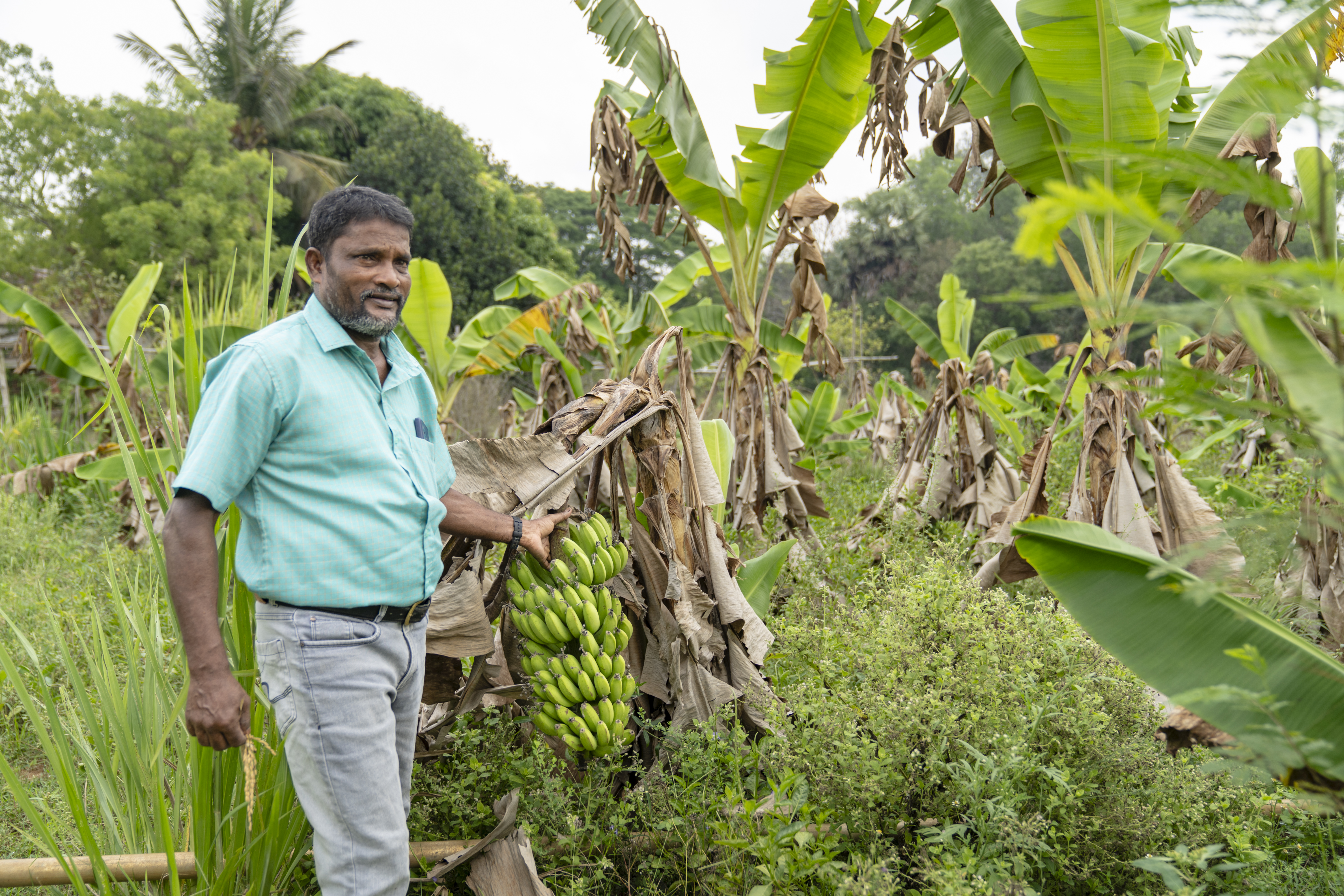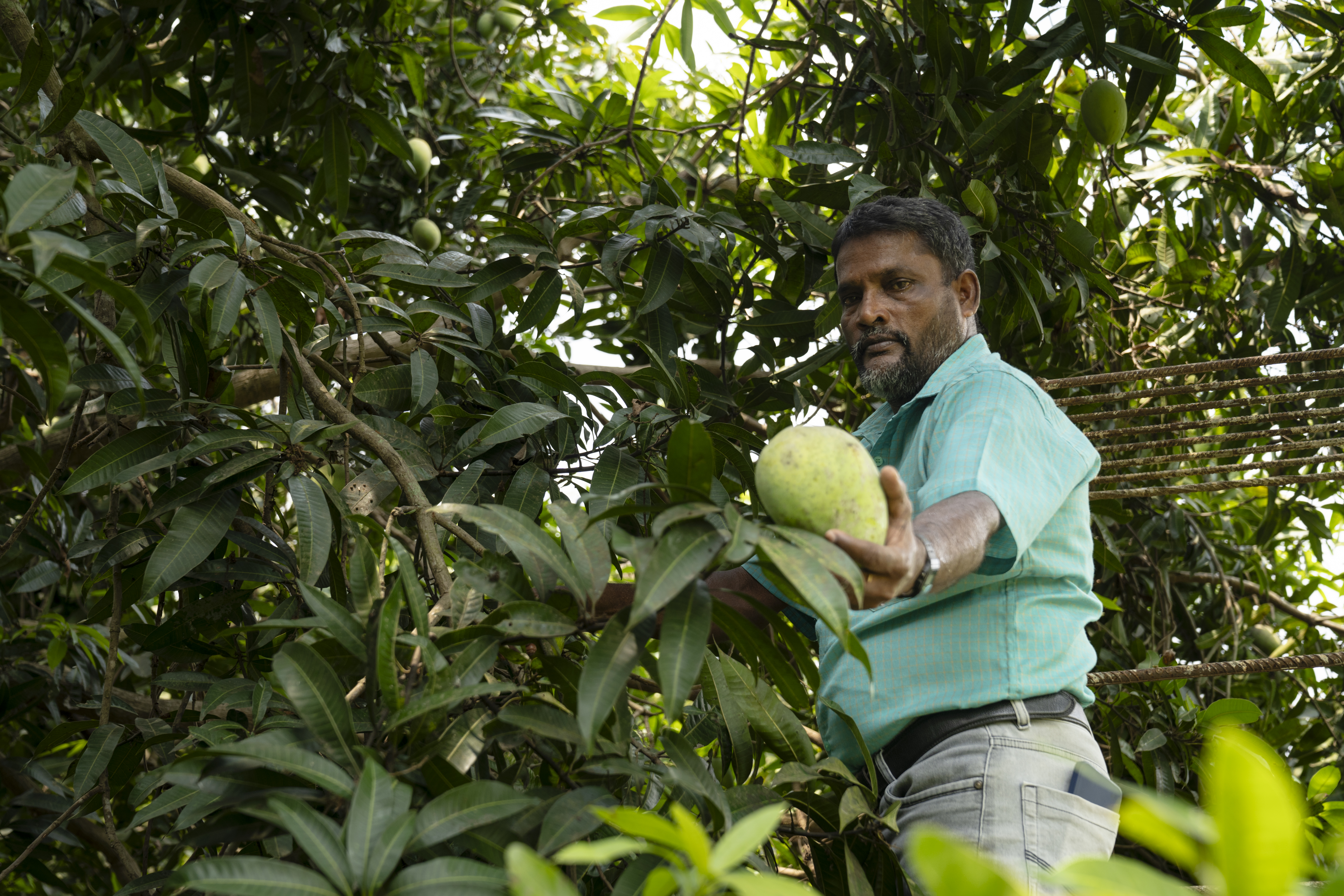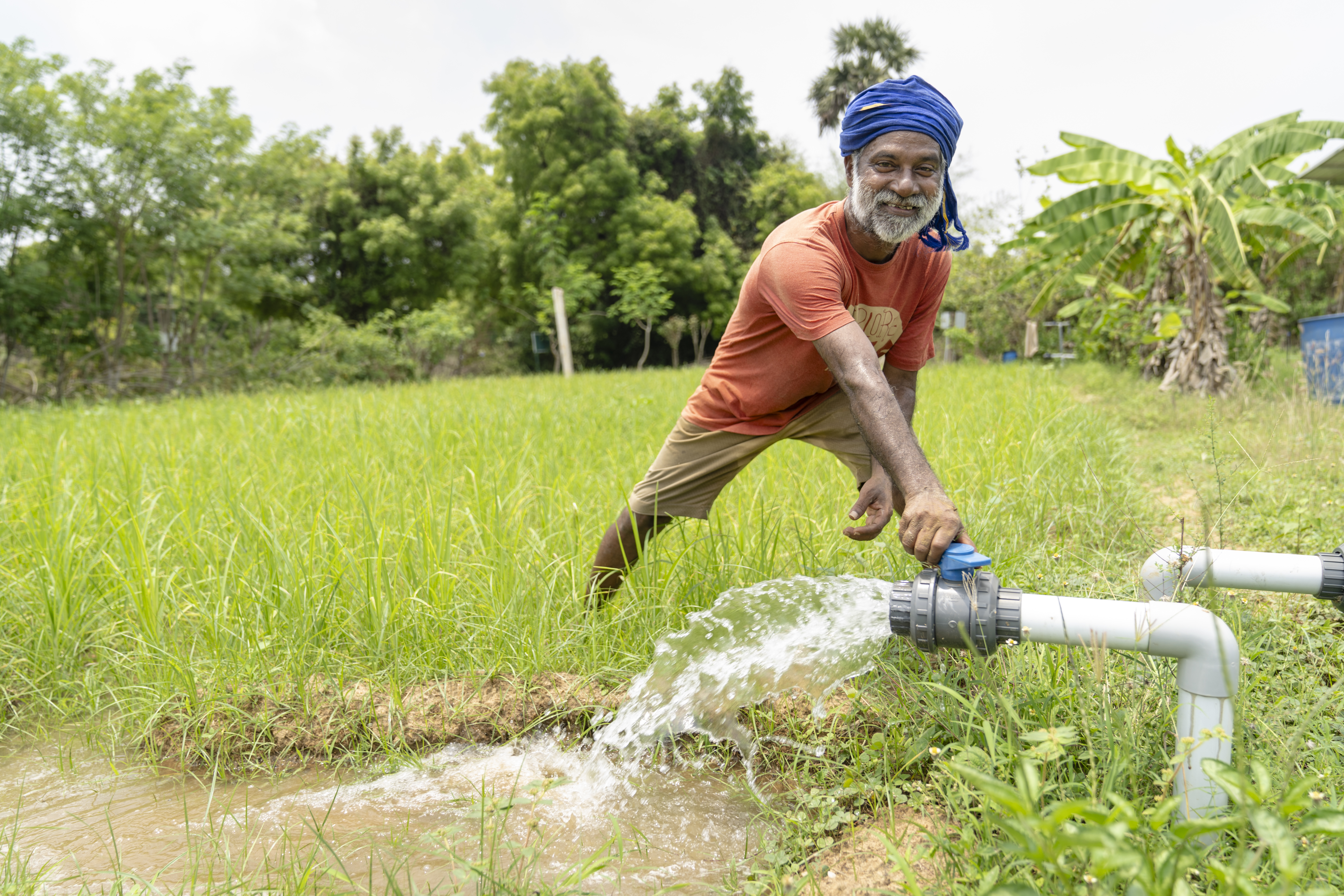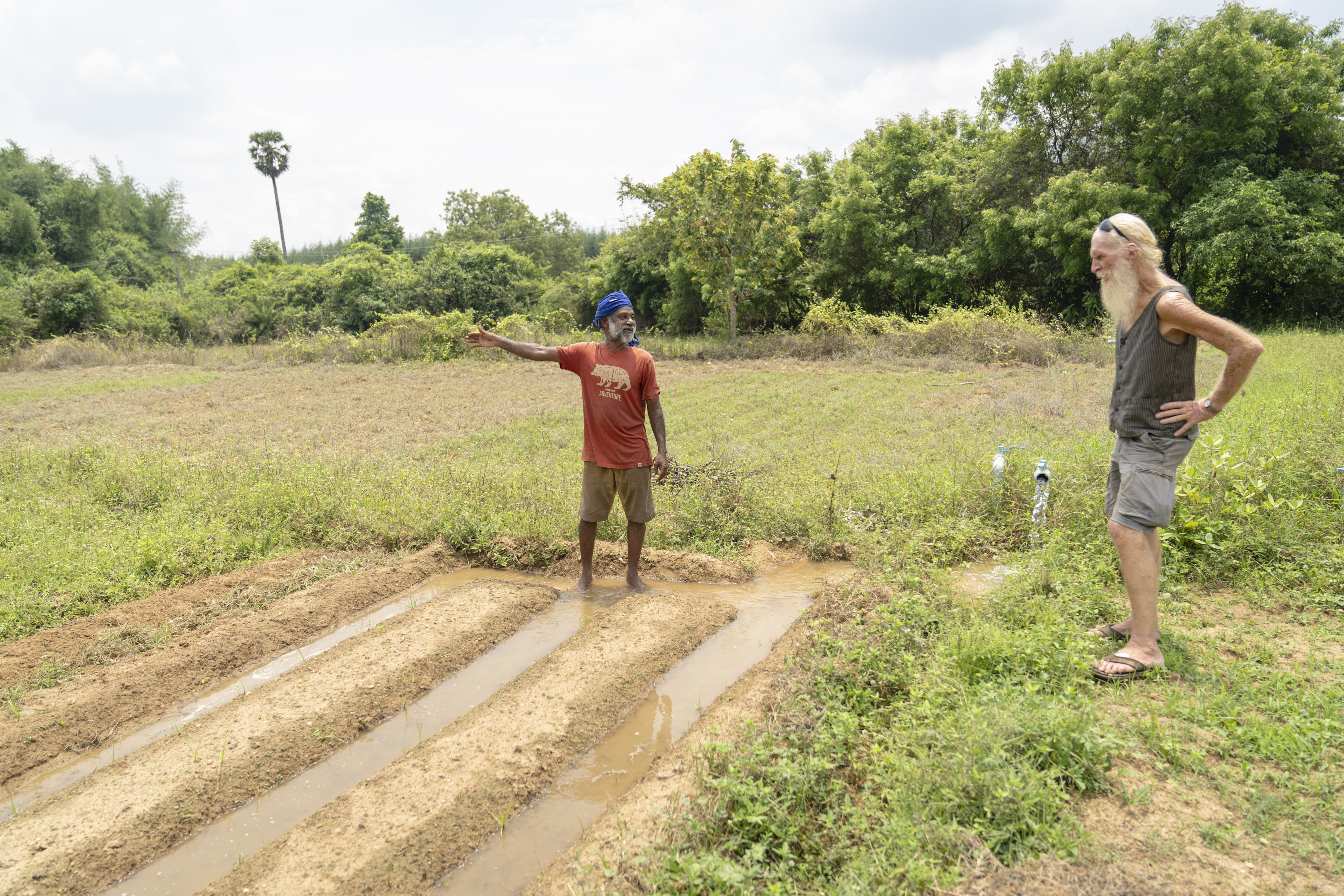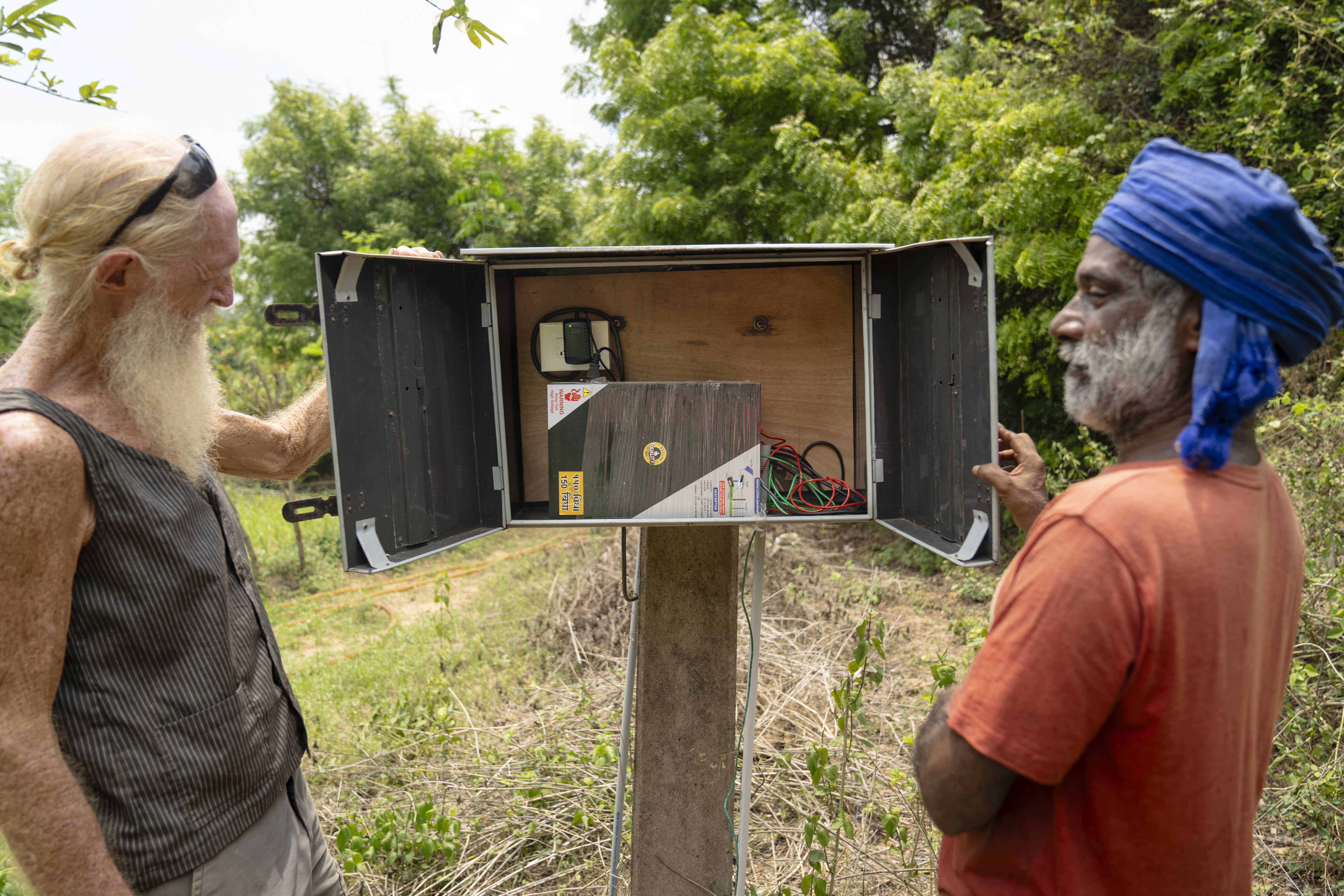Solar Water Pumps for Auroville’s Farms
By Charlie Lammert

The Solar Water Pump initiative began in 2021 with the aspiration to improve the water situation for as many Auroville farms as possible by installing solar pumps according to the individual needs of each farm. The obvious benefits were ecological: to be able to pump water by means of solar power instead of having to use TNEB (the normal Tamil Nadu electricity source) or diesel, a non-renewable source of power. Another expected benefit is economical, to free the farms from the expenses incurred by using the normal energy grid or by the purchase of diesel.
In 2021, in Phase I, six solar pumping systems were installed to provide water for seven farms : Alipsa, Aurogreen, Annapurna, AuroOrchard, Ayarpadi, Bhrispati, and Bhumadevi. They included three 5hp pumping stations and three 3hp stations. Once the other farmers realized that solar pumps were really being offered, more came forward with requests for specific needs and the second phase of the project was launched.
In Phase II (2023) nine solar pumping systems were installed on nine farms: Cholai, Demo Foodlink Farm, KK Farm, Moonlight, Sustenance, Terrasoul, Windarra and Siddhartha Farm. In one case, adapting to the particular need one of the larger farms, a second pump system was installed on a farm that had benefitted by Phase I of the project. The other installations included one 7.5 hp, 5 numbers 5 hp, one three hp and two 2 hp systems.
To implement the project farmers sought the assistance of Sunlit Future and its team for evaluating the specific needs, deciding on which solar pumps were appropriate and installing the pumps.
Two factors led to the initiation of this project: first were environmental considerations, second, economic factors
Switching to solar power for agricultural irrigation allows farmers to take a big step towards sustainability. Solar power is renewable and ideally suits a tropical climate.
Being off the grid frees farmers from monthly electricity bills and from the inconvenience of erratic power cuts. It also removes expenses for purchasing diesel. Unlike diesel power, solar power is clean and silent. Also, the infrastructure for servicing solar pumps is in place in India, so repairs are feasible. Another factor is that costs of switching to solar pumping are high and most farmers could not afford the investment without external assistance. This project gives an economic boost to all the farms that participated.
To quantify the impact of solar pumping on crop yield will take more research. It is likely that the impact varies greatly. Across the board all farms gained from having a sustainable form of pumping. For some farms, it has meant that they can now afford to take up some irrigated crops, while previously it was too costly to do so. How much actual gain is related to many other factors that affect crops yields. If a farm has proper fencing, a good irrigation system (sprinklers, or drip) and available capital to initiate cropping, then a solar pumping system is likely to give an increase in yield. Unfortunately, many farms do not have fencing and a good irrigation system in place. And availability of capital to develop is always a problem for farms. In fact the situation for farms has only worsened in last two years, especially as capital for running farms has decreased and income generated by farm activities is down on many places. However, there are some farms who are managing to adjust to the challenges.



